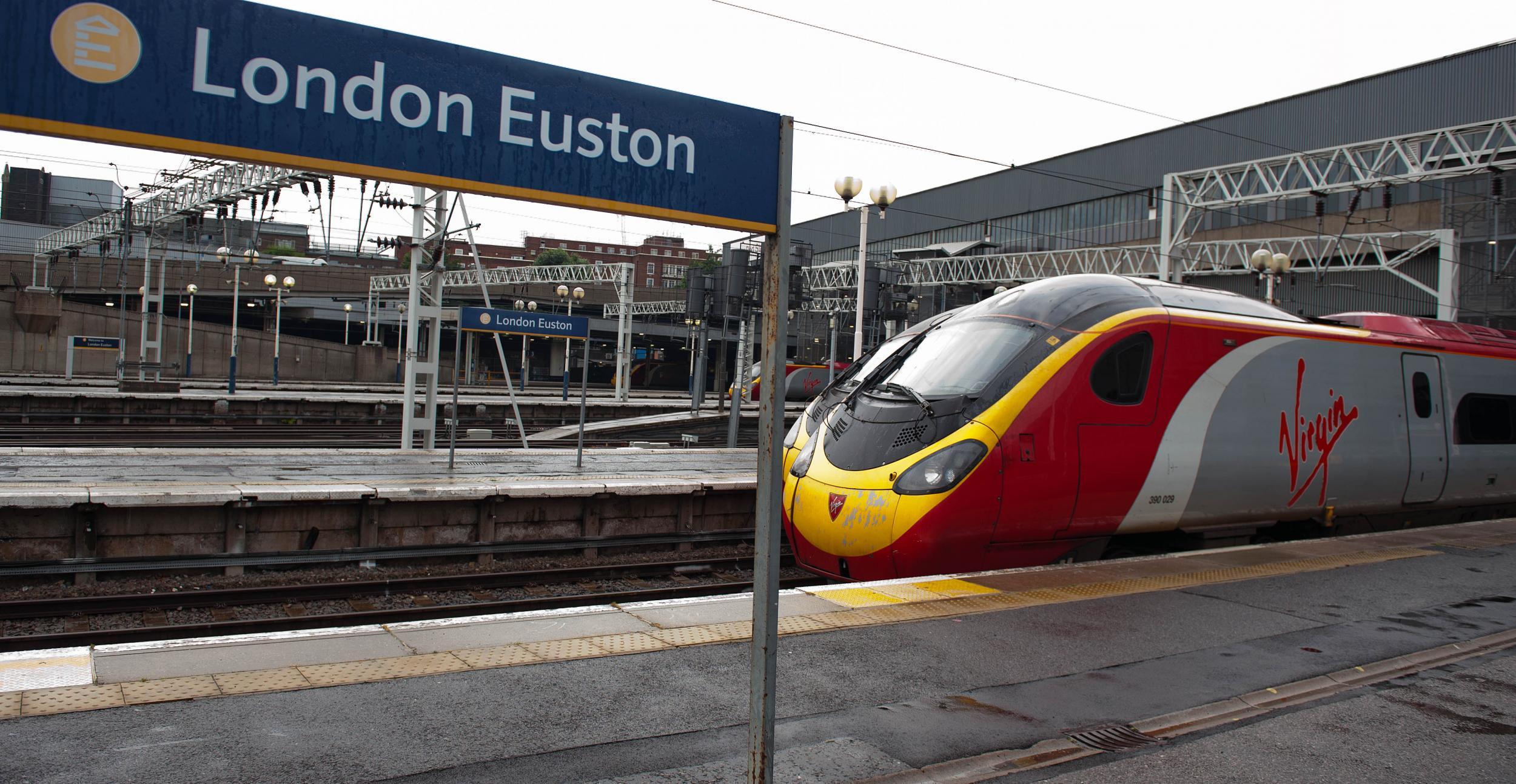The train that exposes what's wrong with Britain's absurd rail services
Simon Calder on the finer points of why train ticket pricing doesn't make sense

Last Friday evening, just before a blanket of cloud chased the daylight from the skies over eastern Cumbria, the fells and valleys appeared as an alluring blur of wide, open spaces from the London-Glasgow express. But the wide, open spaces inside the train were alarming.
This week we learnt how rail fares have risen at twice the rate of wage increases since 2010. They will go up again in the New Year by 1.9 per cent. An increase in regulated ticket prices in line with inflation is annoying to train travellers, though not to the non-rail-using taxpayers who subsidise us. But the fuss over a modest increase in fares is just a distraction from a more fundamental problem: we have the wrong kind of train fares.
Those wide, open spaces on the London-Glasgow express should not exist. I boarded the northbound train at Euston at 5.30pm on Friday. That is the moment each week of peak demand, at least in theory: business travellers returning home should be jostling for space with city-breakers and people visiting friends and family in Cheshire, Lancashire, Cumbria and Scotland.
With a £40 Advance ticket to Carlisle that I had booked 12 weeks ahead, I walked past a string of first-class carriages that were almost entirely empty. I imagined that standard class would comprise a Friday night scrum, but instead it was barely half full. The train between the largest cities in England and Scotland set off with hundreds of empty seats: a scandalous squandering of a valuable and perishable asset.
So where was everyone? Let’s consider just the category of people heading for Preston, the halfway point in the journey, who ideally would have wanted to leave the capital by train at around 5.30pm. Unless they planned well in advance, or had someone else paying, they would have been deterred from travelling on that service by a punitive one-way fare of £172. Instead, some of them were already well on the way to the Lancashire city; the last off-peak departure before the rush hour, fare £86, is mid-afternoon.
By the time the 3.30pm service leaves, the fare doubles, and remains stubbornly high until the 7.30pm – which, from past experience, is a crush of ill-tempered travellers who are rightly irritated by not being allowed to reach their Lancastrian loved ones in time for dinner.
Others will have opted to add to the congestion on overcrowded roads, whether by driving the 200 miles or going by bus.
I don’t blame Sir Richard Branson, who lends his business empire’s name to the train. Nor do I accuse Stagecoach, his Scottish partner, of profiteering. They are obliged to incentivise you and I to travel when we don’t want to, and each week see their most valuable assets – seats on the 5.30pm from Euston – squandered.
British rail travel through the ages
Show all 30Where did ticket prices go wrong? At the time of rail privatisation, the Government imposed measures to try to ensure that the train operators didn’t exploit the traveller. So prices for long-distance, off-peak rail trips are capped.
In fact it’s only return journeys to which the price limit applies, which is why it costs just £1 more than that £82 single to Preston to get an off-peak return; train operators traditionally set their one-way, off-peak fares only fractionally lower than the return.
Train operators have been able to play about with what constitutes peak time. Virgin has eroded the times when the lower fares are available, increasing the pent-up demand for the first northbound train at the end of the evening rush hour when the fares plummet. The operator sometimes sends out plaintive messages urging anyone who can delay their journey still further to do so. But it has no power to smooth the "cliff-edge" boundary between peak and off-peak.
The fact that passenger numbers have doubled since privatisation suggests that plenty of people don’t feel exploited. (I’m talking here about long-distance trips rather than commuter journeys, which entail a whole other morass of rules and resentment.) Advance-purchase tickets enable rail passengers who are able to plan well ahead and be flexible about when they travel to enjoy the lowest inter-city fares in western Europe.
For those who can’t plan months ahead, and simply want a reasonable fare on the day of travel, the convoluted system of regulated fares is supposed to help. But I don’t believe it does.
Passenger groups are loath to see any diminution in the protection that rail travellers get against fare rises, and may defend a pricing system that involves a blunt instrument rather than sophisticated demand management. But the world has moved on, and the regulated fares arrangement is no longer fit for purpose.
Imagine if easyJet suddenly doubled its London-Glasgow air fares between 3.30pm and 7.30pm.Those flights would be mostly empty, while departures before and after would sell out too quickly. Instead, of course, the airline responds to demand with a gentle curve in pricing, reaching a peak around 6pm but with plenty of options on either side.
Either side of the London-Glasgow train is spectacular. We thinly scattered passengers can enjoy uninterrupted views, as well as the benefit of an adjacent empty seat for which we haven’t paid. Handy for us, absurd for the nation as a whole.
Subscribe to Independent Premium to bookmark this article
Want to bookmark your favourite articles and stories to read or reference later? Start your Independent Premium subscription today.

Join our commenting forum
Join thought-provoking conversations, follow other Independent readers and see their replies